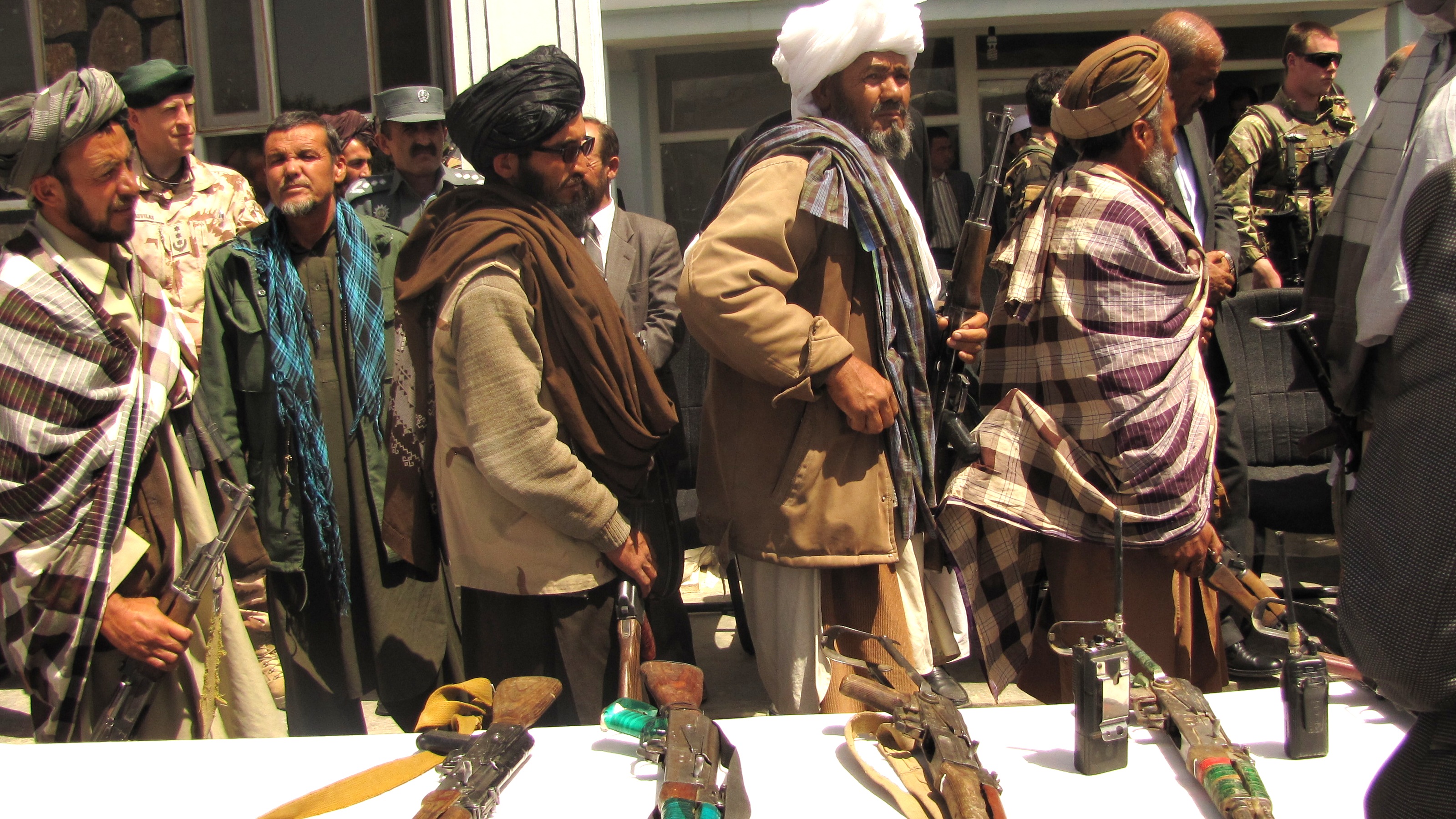Afghanistan and American Jihadists: More Inspiration, Less Destination
Some American law enforcement and national security officials speculate that the Taliban takeover in Afghanistan may embolden American jihadist sympathizers.

Published by The Lawfare Institute
in Cooperation With

The day after the United States completed the withdrawal of its military presence from Afghanistan, we received a handwritten letter at our Program on Extremism office from an American in federal prison serving a decades-long sentence for supporting the Islamic State. “What’s been up with you?” the convicted terrorist wrote. “As you can see, the Taliban is up … and this time to stay. Give it 10 years from now and you will see the Caliphate will be back as well.” While this correspondence stood out for its candor and pithiness, it also shows that the recent developments in Afghanistan have become topics du jour for supporters of the jihadist movement around the world.
American law enforcement and national security authorities are evaluating these developments and their relationship to the threat of international terrorism. Senior U.S. intelligence and law enforcement officials have testified before Congress that they expect “more inspiration” to international terrorism if al-Qaeda or the Islamic State’s affiliate in Afghanistan (IS-Khorasan, or IS-K) are able to regain strength in the country. The FBI’s assistant director for international operations has claimed that more American jihadists see events in Afghanistan as a “rallying cry and their opportunity” to “buy a gun, run people over with a car, do whatever they’re going to do.” This increased interest in Afghanistan could be a harbinger for a groundswell of homegrown jihadist activity, in a similar manner to the U.S. wave of cases related to the Islamic State in Iraq and Syria (ISIS) between 2014 and 2019.
With recently emboldened American jihadist sympathizers, should U.S. policymakers expect a similar resurgence of foreign fighters to Taliban-controlled Afghanistan? From 2011 onward, more than 50,000 foreign jihadists from around the world traveled to the Levant to join jihadist groups, including several hundred from the United States. However, Afghanistan as a destination for jihadist travelers is a far more difficult proposition than the Levant almost a decade ago. No matter the strength of ideological pull factors to an area of conflict or specific jihadist group, foreign fighter travel involves a host of logistical, financial and operational security-related roadblocks that often convince would-be travelers to forego their journeys. With air travel into and out of Afghanistan’s airports impossible, American jihadists risk multistop journeys with “layovers” in neighboring countries where they are especially likely to stand out as Americans, attracting the attention of local law enforcement and heightening the risk of interdiction at each stage of the journey. Coronavirus-related international travel restrictions also may hamper jihadists’ ability to move across borders undetected.
This all assumes that travelers are able to leave the United States while eluding federal law enforcement prior to their journey, a risky step in and of itself. The FBI’s massive ISIS-related caseload during the past decade gave the bureau the know-how, experience and investigative authorities to interdict terrorist travel. So far, most Americans who attempted to travel to Afghanistan to join IS-K were foiled before they were able to board a flight. In October 2018, an Ohio teenager named Naser Almadaoji was arrested as he checked into the airport, intending to travel from Columbus to Afghanistan via Washington, D.C., Frankfurt, Germany, and Astana, Kazakhstan. The criminal complaint claims that Almadaoji’s convoluted itinerary required him to raise more than $2,000 through a credit card fraud scheme and find a smuggler (who, unbeknownst to Almadaoji, was an FBI undercover employee) to take him from Kazakhstan into IS-K territory.
Complicating this situation, an Afghanistan under the control of one jihadist group does not necessarily mean that all jihadist groups in the country will be given carte blanche to take in Western foreign fighters. The Taliban—and their historical allies al-Qaeda—have undergone a precipitous decline in popularity among American jihadist sympathizers, to the benefit of their competitor IS-K. If Syria and Iraq are any indication, Americans interested in travel to Afghanistan will gravitate almost entirely toward IS-K rather than their competitors. Even in a scenario where would-be American travelers beat the odds and cross Afghanistan’s borders, they may nonetheless face an inhospitable environment if they are attempting to join IS-K, which is currently in an active conflict against the Taliban. IS-K also lacks the massive bureaucratic infrastructure that ISIS used to process and take in foreign fighters. As a result, an American foreign fighter may be at a far greater risk of capture by the Taliban.
Despite the improbability of a foreign fighter wave, there will most likely be a minor trickle of American jihadists into Afghanistan. Since the Soviet-Afghan war in the 1980s, Afghanistan has been a perpetual destination for small numbers of Americans who sought to join different iterations of militant groups active in the conflict. Outside of the West, countries in Central, South and Southeast Asia have recently reported foreign fighter travel to Afghanistan on a much greater scale than the U.S. Within the American jihadist imagination, Afghanistan is irreplacable: It is not only the site of the formation of the modern jihadist movement but also the site of perceived continuous resistance (and success) against the U.S. The combination of this historical backdrop and the impact of current events will likely ensure that the global ecosystem of jihadist sympathizers will increase interest, chatter and planning with a nexus to Afghanistan.
However, not all American jihadists inspired by recent developments in Afghanistan will view travel as their primary means of supporting the movement. Some will attempt to aid al-Qaeda or IS-K remotely through providing financial support, assisting the groups on social media or helping to develop propaganda. Others may conduct terrorist attacks at home. If IS-K is able to develop sufficient operational freedom within Afghanistan, the group may consider adopting ISIS’s external operations model that relies on their operatives communicating with Westerners and giving them instructions to carry out attacks in their own countries. The reemergence of “virtual entrepreneurs” in Afghanistan could, like their predecessors in Raqqa nearly a decade ago, leave a dramatic impact on the number of Islamic State-related attack plots in the United States even if cases of attempted travel remain low. These threats may be even greater from those who attempt to travel to Afghanistan but are thwarted.
These assessments come with one caveat—the security situation in Afghanistan today remains incredibly fluid. The critical variable is IS-K and its ability to make territorial and/or military gains against the Taliban. The group could also decide to revisit the ISIS model of external recruitment in the West, which could have a profound impact on the jihadist movement in the U.S. Unless or until either of these occurs, Afghanistan will continue to be a source of inspiration for America’s jihadists. Any jihadists who do decide to book tickets with Afghanistan as their final destination may be embarking on a quixotic journey. And those jihadists who cannot may have to be content sending letters to terrorism researchers like ourselves.





